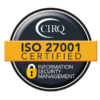Overview of the Study
This study was conducted through the collaboration of Patients Rising, Team Type 1 Foundation, and Rare Patient Voice. The market access patients case study looks at how patients with Type 1 Diabetes (T1D) access the care they need to manage their illness and essentially survive.
The study used the data gathered after surveying 229 T1D patients and caregivers.
Summary of the Study
Market access determines the success of new products that enter the world of biotechnology. Viewing market access using the patient’s perspective outlines different insights and issues that may otherwise not be as apparent.
Type 1 Diabetes
The study focuses on patients with T1D, but many of the insights gathered and formulated can be applied to other diseases and conditions.
Insurer Interference
Insurance plays an important role in the life and treatment of T1D patients and caregivers. They can affect the direction and overall outcomes of these treatments.
A majority or 55 percent of the people surveyed report that their insurers have asked them to switch to brands that were not the ones agreed upon with their physicians. Only one percent out of the 55 reported that the new brands were better.
Delayed Response
Over 70 percent also reported that aside from having limited coverage from their policies, they also encounter delays in insurers’ response times.
Out of Pocket Costs
Out of pocket costs remain the top issue when it comes to market access according to T1D patients and caregivers. These people reportedly spend an average of $300 every month for T1D treatment out of their own pockets.
Copay
Only 33 percent of those surveyed have used copay, drug coupons, or drug discounts. Only a quarter of these people have used these discounts to pay down the deductible.
Access to Care
In terms of access to the care they need, some patients and caregivers report either having to go 4-5 hours away to find a qualified endocrinologist or needing to go outside their insurer’s network, which means more out of pocket costs.
Conclusion
Despite most patients and caregivers saying they have some coverage for T1D treatment, there are still many issues including interferences and delays. The majority of the items essential for T1D patients are only partially covered, raising the average out of pocket costs to over $300 per month.
Out of pocket costs are the most common obstacle for patients and caregivers.
T1D is taxing on patients and caregivers. They suffer physically, emotionally, mentally, and financially. Many patients also suffer from other conditions.









